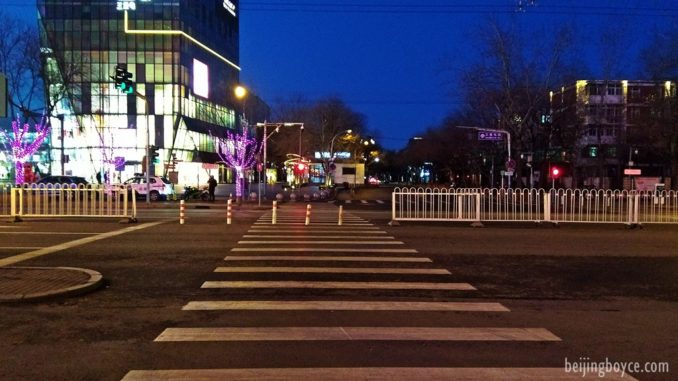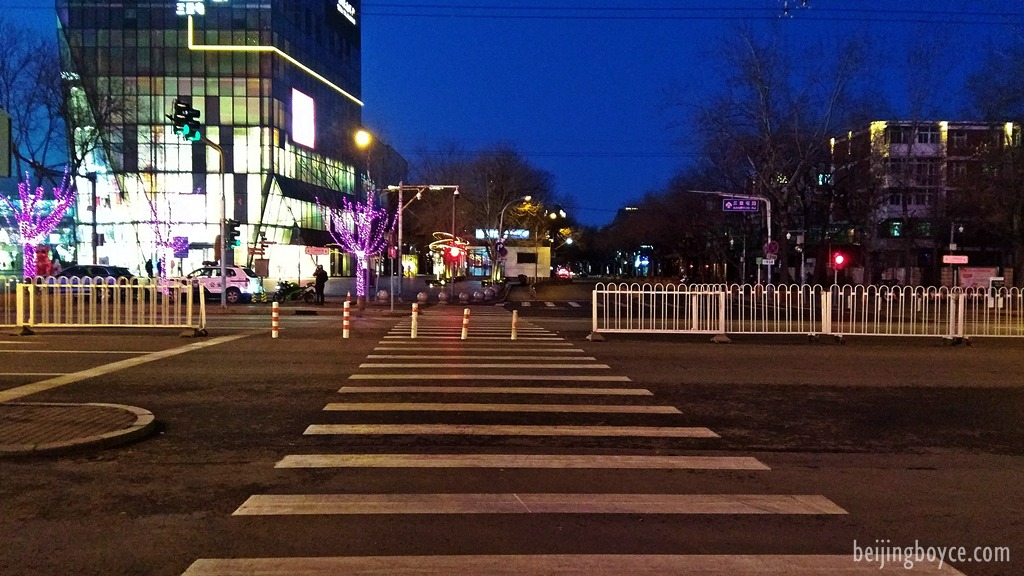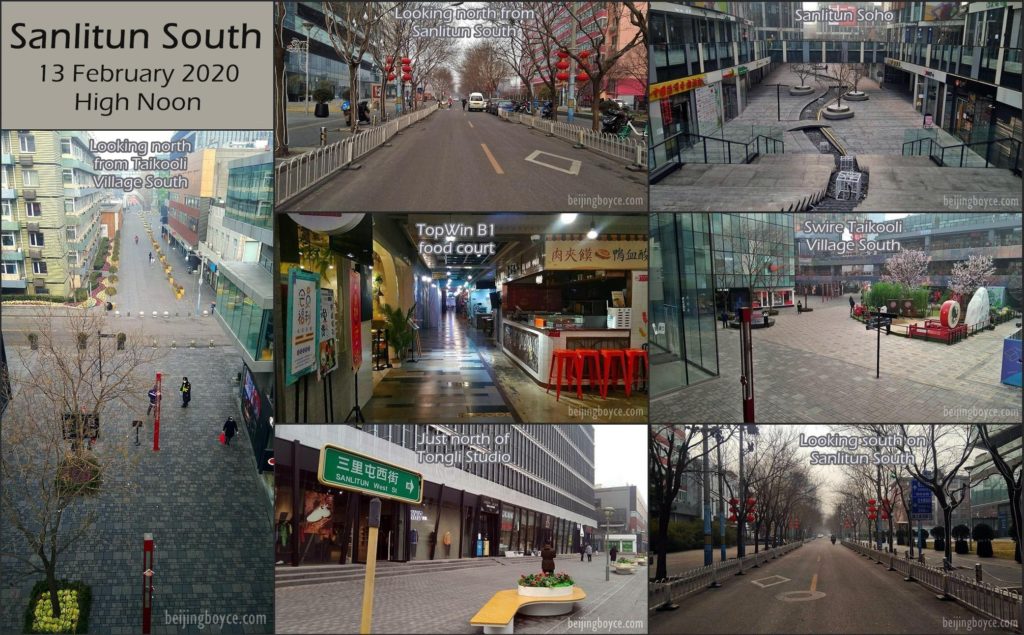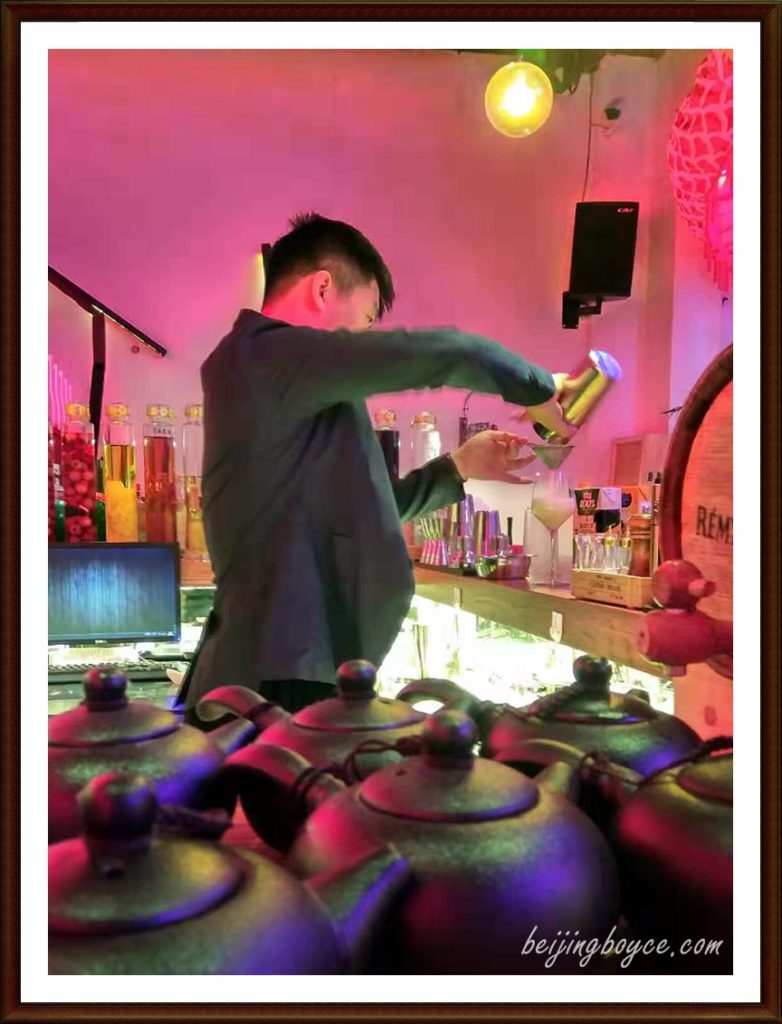
(Originally posted on my social media: beijingboyce on Twitter, Facebook and WeChat. Updated on February 14.)
Beijing restaurants and bars are being hit hard by the coronavirus crisis. Many are closed. Some remain open, often with limited menus and /or hours. And they face rules and regulations that evolve as this uncertain situation mutates.
I’ve talked to many food and beverage trade people and done a great deal of reading the last few weeks: below is info gathered and insights heard, ending with direct quotes by the trade. I don’t claim to be an expert about any of this, I’m just sharing what I’ve learned. (For my post specifically on coronavirus and wine, see Ten ways China’s wine trade has been hurt.)

Beijing Evening News reported February 5 that only 13% of the city’s 87,000 food venues remained open during the epidemic. A February 13 post by Global Times pegged national catering sector losses at USD72 billion, with 93% of restaurants shut, for the Chinese New Year break. Closed venues have ranged from thousands of Starbucks outlets and hundreds of Haidilao hotpot branches to small chains and standalone venues. One Beijing restaurateur told me revenue was down 95% (see below).
Beijing authorities banned group dining, such as company, university and birthday parties, in early February. (This is very damaging to the wine trade given how many sales are tied to entertaining. The head of one key importer/ distributor said he expects sales to fall 80 percent in February and 50 percent-plus in March.) Regular events like open mic nights and quiz nights have been canceled at the bars I frequent. Even smaller gatherings are prohibited.

Based on talking to owners / managers, and WeChat food groups, the rule seems to be no more than three customers per table–with at least one meter between tables–totaling less than half of venue capacity. An owner posted today (February 14) that “we cannot accept any group dinners, only (tables for) one to two people.” Venue owners report varying degrees of enforcement based on their area’s officials and civic-minded neighbors. One might see frequent inspector visits inspired by neighbor’s complaints while another will largely be left alone.
Owners told me they must record the temperature, name and phone number of customers. Venues risk fines for staff not wearing masks, not following disinfection rules, and so on. Some venues have closed rather than deal with these issues.
Some also remain closed as staff have not returned from holidays–stuck in distant cities due to travel restrictions. One venue said 70 percent of staff had not returned while another said 90 percent. A third said no employees had come back, and if / when they did, they would require 14 days of self-quarantine.

Given huge revenue drops, owners are understandably worried about Beijing’s sky high rents. Some have already heard they will get discounts from landlords, while others still hope. Beijing Evening News reported that the China Culinary Association proposed all rents and property fees be reduced / waived during the crisis. The association said 95 percent of enterprises saw this year’s CNY operating income decline 70 percent or more compared to last year. A whopping 78 percent saw a decline of over 100 percent, due to a combination of low or no revenue and continuing costs such as rent, insurance and more.
A lengthy crisis would be devastating given owners who have cash just for the short term. A rep from Xi Bei Restaurant Group was quoted by CGTN yesterday: “Our cash flow has been seriously affected because of the epidemic…. We can only last for three months like this even if we pay our employees with the support of bank loans. Our more than 20,000 employees are on the brink of losing their jobs.”
Venues are seeking new ways to bring in money. Some have started or boosted delivery services to get revenue flowing. In the face of few or no customers, some are selling their raw ingredients. From Reuters via Channel News Asia:
Wang Chuanchao shuttered his restaurant in central Beijing three weeks ago as the scare over the coronavirus epidemic in country kept customers away and now he’s reduced to selling off vegetables on the street outside to cut losses.
Anticipating packed tables at his 125-seater restaurant over the Lunar New Year, Wang says he bought in 300,000 yuan (nearly US$43,000) worth of ingredients, ranging from celery to ox tripe. Now, he has to find ways to pay the rent, and his staff, so he can re-open for business once his customers find the courage to come back.
The scene’s barrenness is obvious from any walkabout. Sanlitun-Gongti is a key food and drink destination in Beijing. The point where Sanlitun South and Gongti North cross is usually blood pressure-inducing chaos. This is what it looked like at 6 PM on February 2, the day before post-CNY work should have officially started.

And this is Sanlitun yesterday, February 13, at noon. Few people, few restaurants open, dreary skies: a ghost town. (See more Beijing street photos from the past two weeks here.)

Here are some quotes that typify what I hear from Beijing’s restaurant and bar trade.
Bar: We want to protect our staff. We haven’t closed for one day during the past ten years, so this was a really hard decision.
Restaurant: It’s not looking good. My staff can’t even return to Beijing as some of their villages are locked down. And when they return, they are required to do a two-week self-quarantine.
Bar: It will impact us and many other bars and restaurants. It will take a long time to recover. I think in general people will be afraid to go out.
Wine: The year is gone. Big losses. Some people will be out of business for sure.
Restaurant: The impact has been severe. Revenue has dropped 95%.
Wine: For sure, the first quarter is done, and things can only come back gradually. The ones who still have cash flow [and can hold out] will win in the end.
Restaurant: The virus has hit us hard. I’m sure for everyone else, too. I don’t know how long it will last but we still haven’t opened. If there’s no sign of slowing until March, it could be all over for us.
Bar: You can’t afford the costs even if you open, because there is no business.
Bar: “Even [bar name] is closed today. I don’t think they’ve ever closed before.”
Restaurant: “Our workers cannot come back. They are all blocked because of coronavirus.”
Bar: I feel very sad but what can we do? We can only try out best. I hope everyone will be be okay.”
Tough times. I really do hope all of my friends in the food and beverage scene can keep jia you-ing until this crisis is over. if you have a favorite restaurant or bar or a wine company, give them some business today– order a meal for delivery or grab a drink or stock up on some bottles.

* * *
Get regular Beijing updates via my Instagram and Twitter feeds. Also see my sibling sites Grape Wall of China, World Baijiu Day and World Marselan Day. Help cover the hosting and other costs of these sites with a WeChat, AliPay or PayPal donation.* * *


Leave a Reply